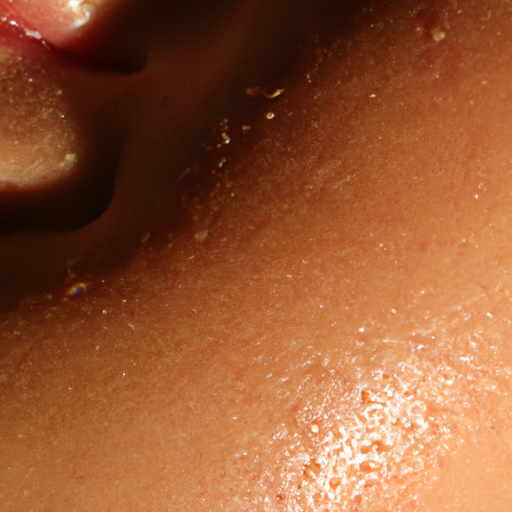As a medical professional, I often encounter patients who are struggling with oily skin. This condition, while not life-threatening, can be a source of discomfort and embarrassment for many. It can lead to acne breakouts, a shiny complexion, and even affect one’s self-esteem. In this article, we will delve into the causes and symptoms of oily skin, unmasking the gloss that often plagues individuals across all age groups.
Oily skin is primarily caused by an overproduction of sebum, an oily substance produced by the sebaceous glands in our skin. Sebum isn’t inherently bad; in fact, it plays a crucial role in maintaining skin health by providing a protective layer that keeps the skin hydrated and guards against harmful microorganisms. However, when these glands go into overdrive, it results in an excessive amount of oil on the skin’s surface, leading to the glossy appearance characteristic of oily skin.
Several factors can trigger this overproduction of sebum. Genetics play a significant role; if your parents have oily skin, you’re more likely to inherit the trait. Hormonal changes, particularly those occurring during puberty, pregnancy, or menstrual cycles, can also stimulate sebum production. Stress, dietary choices, and certain medications can exacerbate the condition. Even environmental factors like humidity and heat can cause your skin to produce more oil.
Recognizing the symptoms of oily skin is the first step towards managing it effectively. The most apparent sign is a shiny or greasy appearance. You may also notice larger, more visible pores. Oily skin often feels thick and heavy, and may have a slightly rough texture. It’s also more prone to blackheads, pimples, and other types of acne due to the excess oil clogging up pores.
In addition to these physical signs, oily skin can also have psychological effects. Many people with oily skin feel self-conscious about their shiny complexion and the frequent breakouts it can cause. This can lead to a decrease in self-confidence and overall quality of life.
While oily skin can be a nuisance, it’s important to remember that it’s not a reflection of your hygiene or lifestyle. It’s a common skin condition that can be managed with the right skincare routine and, if necessary, medical treatments. If you’re struggling with oily skin, don’t hesitate to reach out to a dermatologist or other healthcare professional. They can help you understand your skin type, identify potential triggers, and develop a personalized treatment plan.
In conclusion, oily skin is caused by an overproduction of sebum, influenced by various factors including genetics, hormones, stress, diet, medications, and environmental conditions. Its symptoms include a shiny or greasy appearance, larger pores, and a propensity for acne. While it can be challenging to live with, understanding its causes and symptoms is the first step towards effective management. As a doctor, I encourage anyone struggling with oily skin to seek professional help – there are numerous treatments available that can help you regain control over your skin and your confidence.



